Microfluidics and Medtech
Where technology meets biology
We use our profound knowledge in microtechnology, material sciences and chemistry to provide technical solutions for Life Sciences and Medical Technology. Our key competences are the design, realization and characterization of miniaturized sensors and microfluidic elements, as well as their systematic integration into functional Lab-on-a-Chip devices.
system integration
One of the challenges for microfluidic devices are the proper integration of electronic and fluidic connectivity for data and media exchange. We provide an easy to use and systematic approach to connect your micromechanical device to the macroscopic world. One approach is based on a user-specific multi-material bonding technology, allowing to combine various materials like glass, metals, silicon and polymers. This allows us to build complex networks of combined microfluidic and electric circuits in a compact, yet robust device.
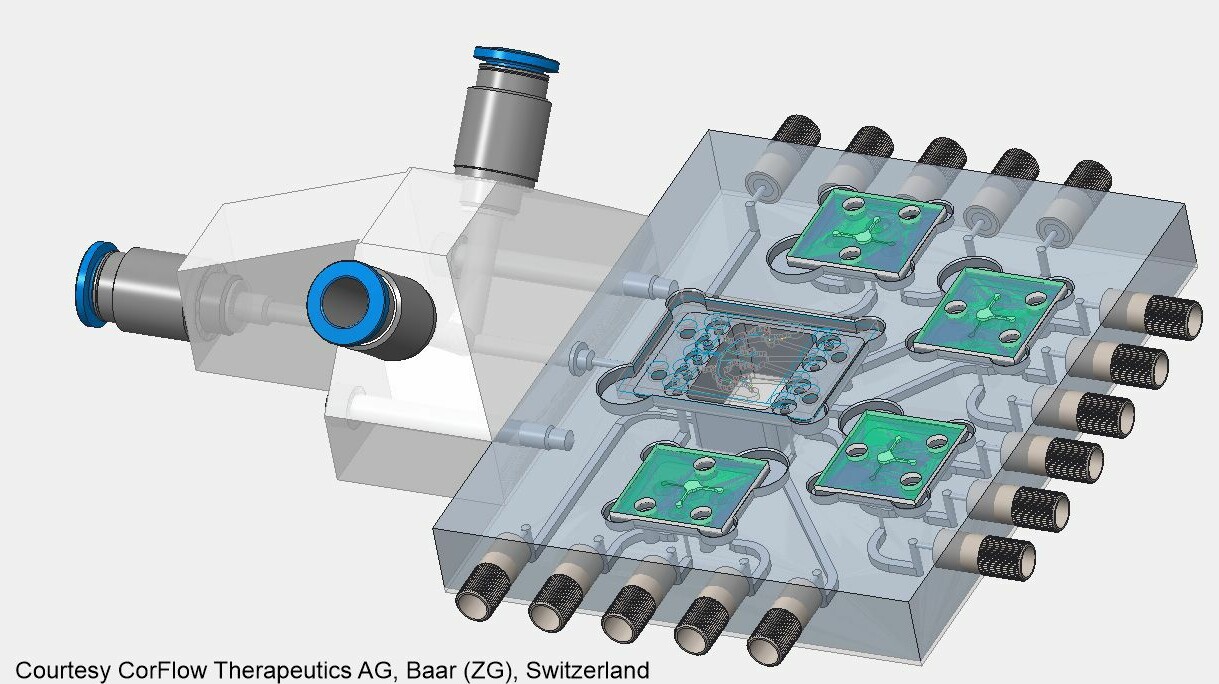
Lab-on-a-Chip and microfluidics
Lab-on-a-Chip and microfluidics
The goal of microfluidics used in Lab-on-a-Chip systems is to bring the functionality of a macroscopic lab onto a small footprint. This enables the development of portable and cheap devices, such as disposables for medical diagnostics or molecular biology. Additionally, a miniaturized and automated system can be operated with much lower amounts of costly reagents and often works faster than a macroscopic system.
From design and simulation to fabrication and characterization, we realize complex microfluidic systems as well as fluidic elements like mixers, valves, pumps and are able to integrate various sensors. Next to classical MEMS processes, Selective Laser Etching (SLE) and micro-milling are also available in-house.
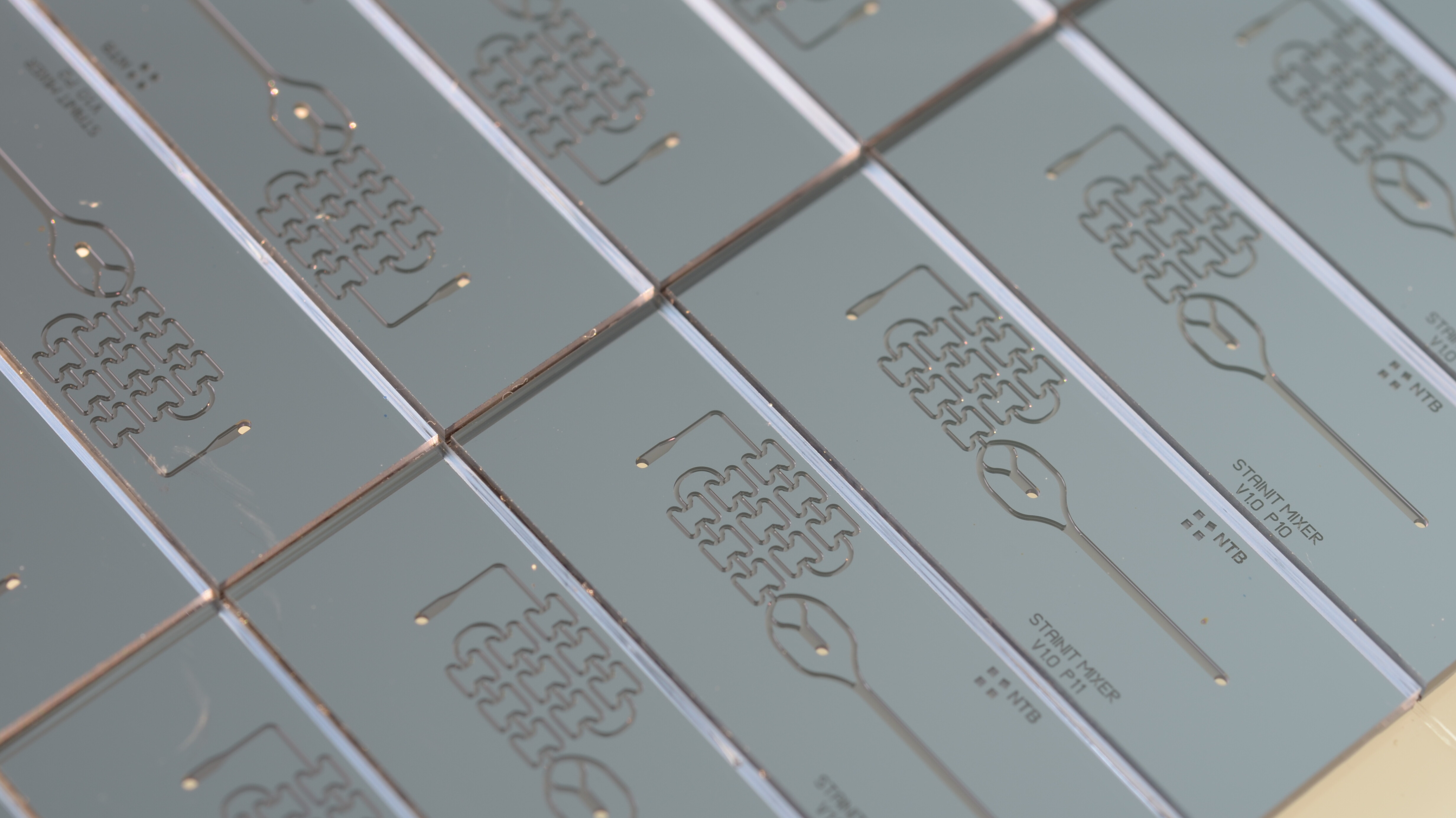
Sensing
Whether to observe our environment or to monitoring processes, sensors are important elements to obtain quantitative data. We integrate commercial sensors into complex systems or use our own developments to fulfil user-specific tasks. Our expert knowledge includes MEMS sensors as well as sensors specific for the application in medical diagnostics and molecular / cell biology, like anemometers, calorimetric or electrochemical sensors.
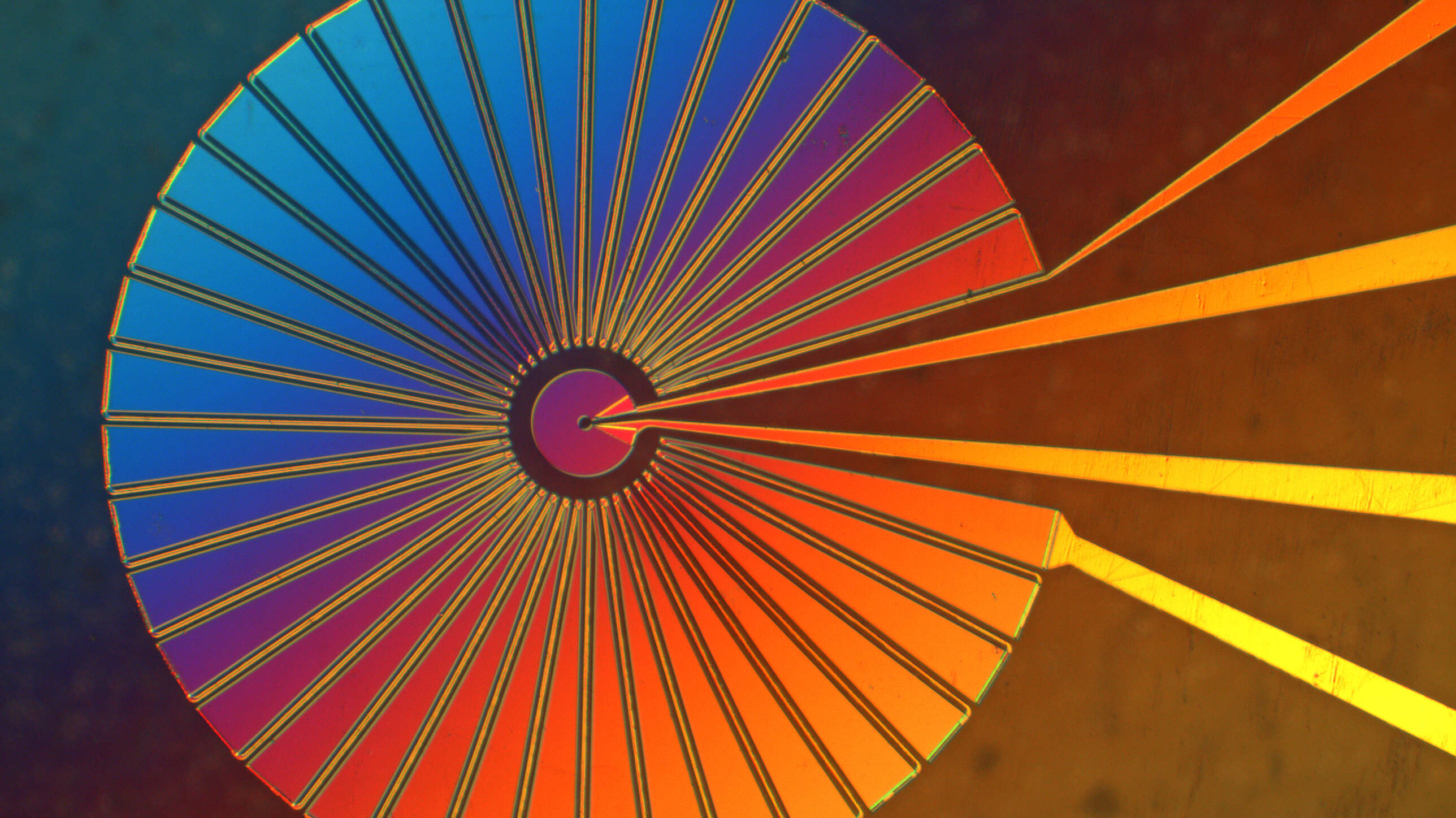
Surface modification
The topography and chemical composition of surfaces are crucial in many biological and medical applications. Our knowledge in selective functionalization, using printing and lithography to mechanical and chemical nanostructuring, we are able to design application specific surface modifications by combining a multitude of different technologies.
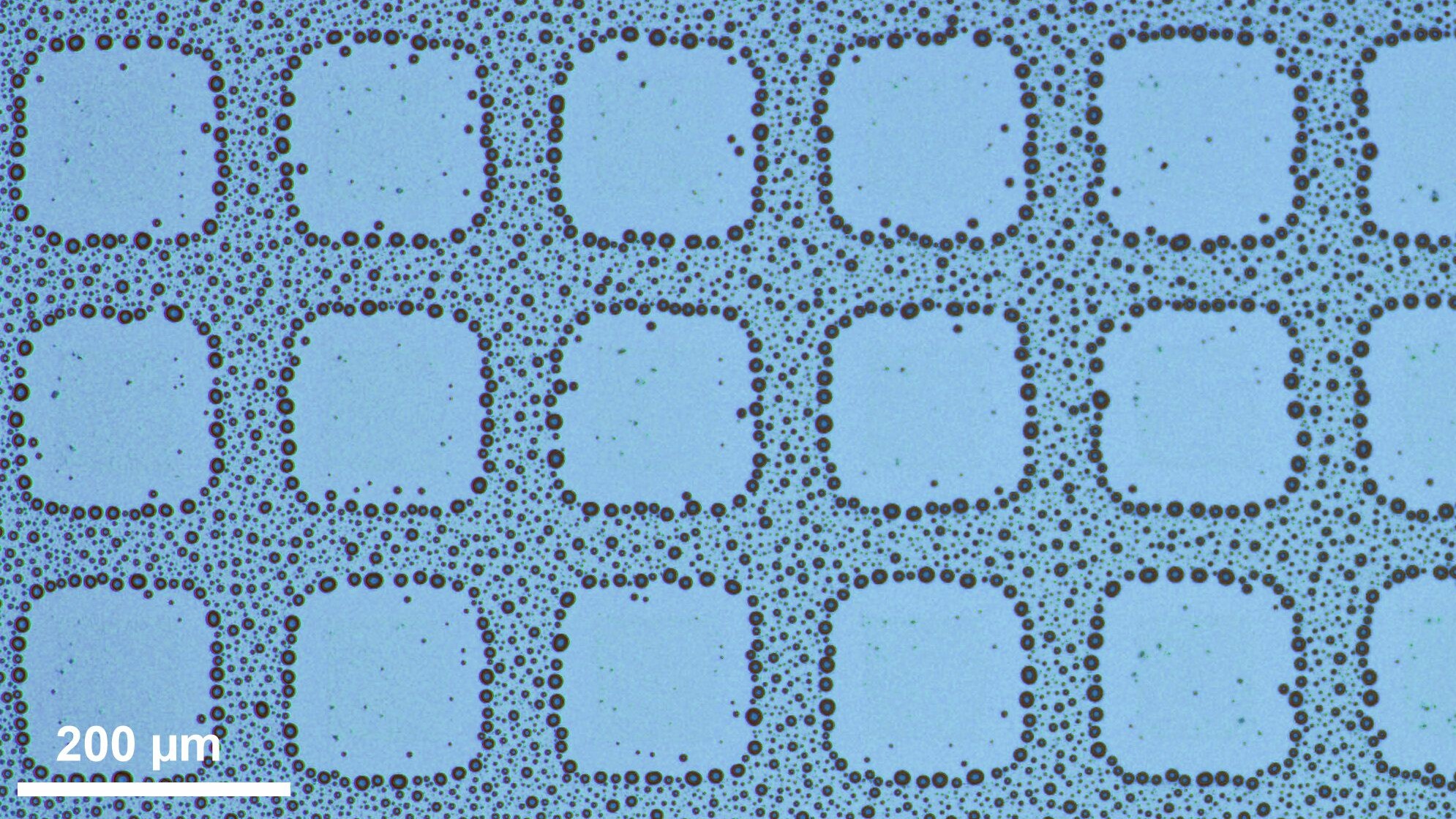
Equipment
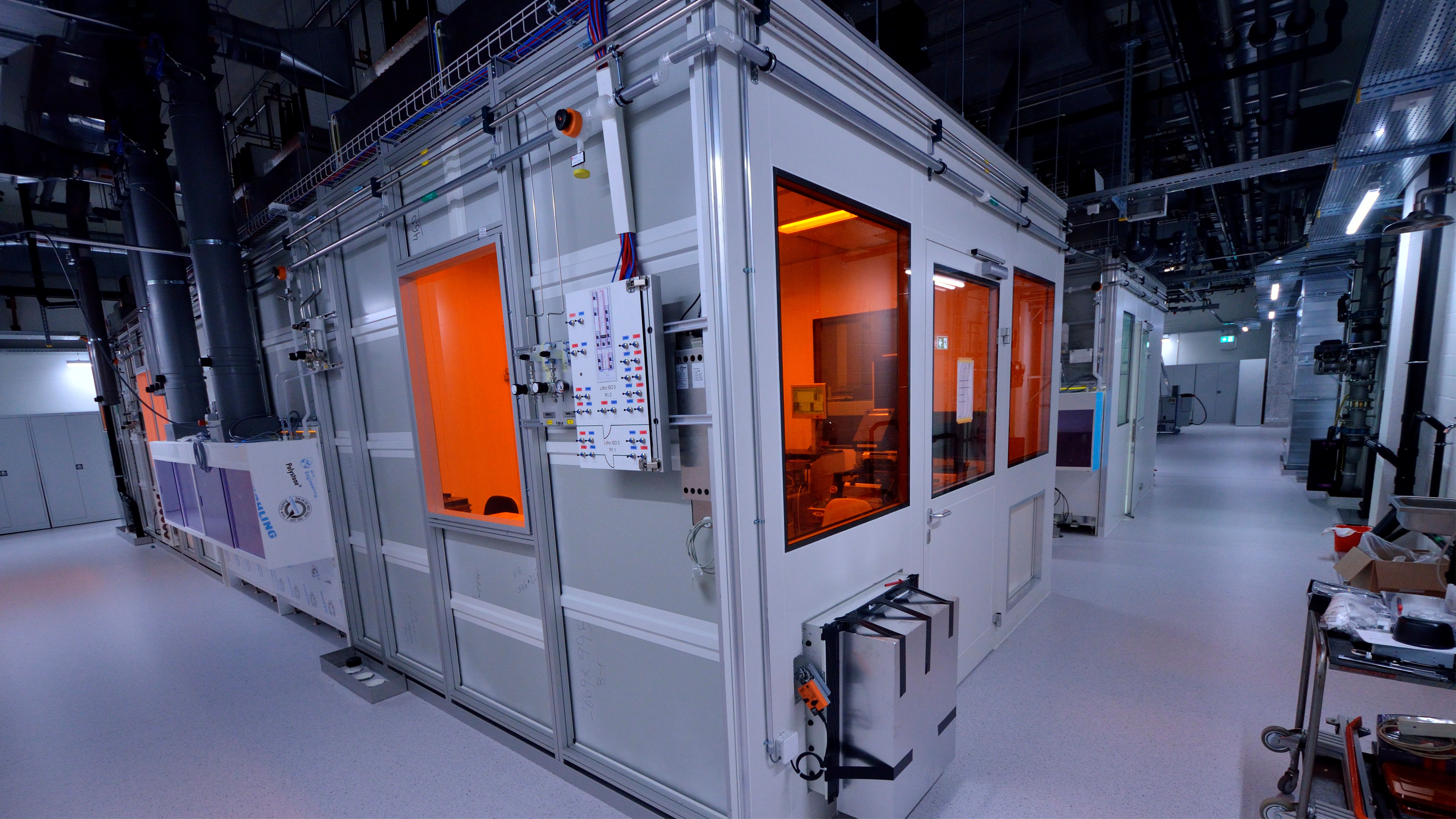
Comprehensive infrastructure is available for the fabrication, assembly and characterization of microfluidic components.
Dr. Yves Mermoud
IMP Institut für Mikrotechnik und Photonik Research Scientist
+41 58 257 34 59 yves.mermoud@ost.ch

Prof. Dr. Jens Ulmer
IMP Institut für Mikrotechnik und Photonik Professor für angewandte Chemie, Leiter Kompetenzbereich Polymere Werkstoffe
+41 58 257 34 11 jens.ulmer@ost.ch


![[Translate to English:] Courtesy CorFlow Therapeutics AG, Baar (ZG), CH](/fileadmin/dateiliste/3_forschung_dienstleistung/institute/imp/mikrotechnik/lab-on-a-chip_title.jpg)